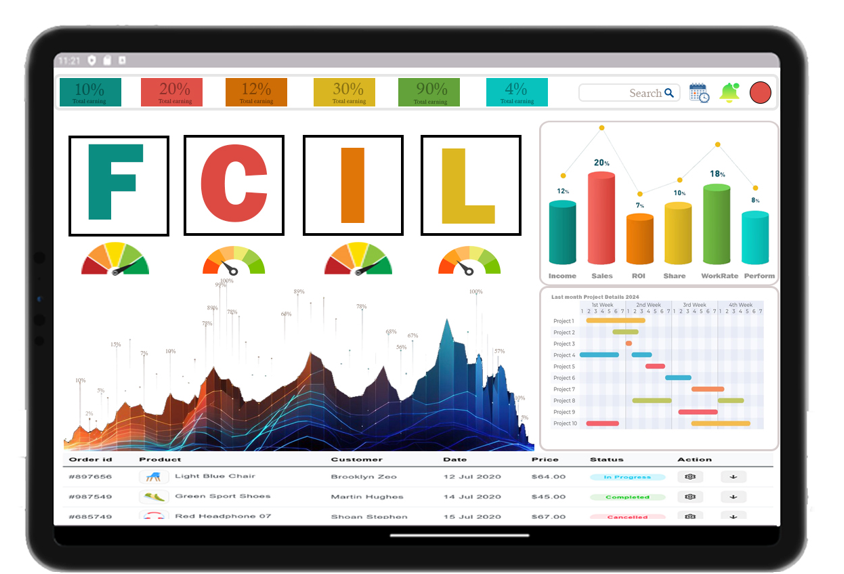The Balanced Scorecard (BSC) has been a pivotal tool in strategic planning and performance management since its introduction in the early 1990s. By providing a framework to align business activities with organizational vision and strategy, it offers a comprehensive view of performance beyond financial metrics, incorporating perspectives like customer satisfaction, internal processes, and learning and growth. Today, the integration of Artificial Intelligence (AI) into Balanced Scorecard software is revolutionizing the way organizations manage strategy execution, offering advanced capabilities that can significantly improve decision-making and operational efficiency.

The Role of AI in the Balanced Scorecard (BSC)
AI adds immense value to Balanced Scorecard software by enhancing data analysis, automating repetitive tasks, and offering predictive insights. Traditional BSC systems rely heavily on manual data input and retrospective analysis, which can be time-consuming and subject to human error. AI, on the other hand, can automate these processes while providing real-time insights and forecasting, making strategic management more dynamic and proactive.
Key Benefits of AI-Enhanced Balanced Scorecard (BSC) Software
1. Predictive Analytics for Strategic Decision-Making
AI's predictive capabilities allow businesses to forecast future trends, challenges, and opportunities by analyzing historical data and recognizing patterns. In a BSC framework, this means managers can anticipate issues in key performance areas like financials, customer satisfaction, or internal processes before they become critical. For example, AI can predict shifts in customer behavior, enabling companies to adjust their strategies preemptively.
2. Real-Time Data and Reporting
One of the limitations of traditional Balanced Scorecard (BSC) systems is the reliance on static data, which can quickly become outdated. AI enhances this by providing real-time data collection and analysis. This enables decision-makers to access up-to-date insights into performance metrics, allowing for timely course corrections when needed. Moreover, real-time data reporting reduces the need for manual reporting, saving time and ensuring more accurate performance evaluations.
3. Automated Data Collection and Processing
Collecting and processing performance data across multiple business units can be overwhelming in a traditional Balanced Scorecard system. AI simplifies this by automating data collection from various sources, such as CRM systems, financial databases, and employee management tools. This ensures that all relevant data is gathered efficiently and analyzed in a way that highlights key insights. As a result, managers can spend more time strategizing and less time dealing with the technical aspects of data management.
4. Improved Performance Tracking and Monitoring
AI algorithms can monitor performance across all BSC perspectives (financial, customer, internal processes, and learning and growth) more comprehensively and accurately than manual systems. For instance, if internal processes are underperforming or if financial metrics are declining, AI-driven software can alert managers immediately and suggest potential improvements based on historical data. This improves the agility of an organization in responding to performance issues.
5. Enhanced Strategic Alignment and Accountability
Balanced Scorecard software with AI fosters better alignment between departmental objectives and the overall corporate strategy. AI helps to ensure that individual metrics and key performance indicators (KPIs) are continuously aligned with the organization’s strategic goals. With AI-driven insights, employees and managers can see how their work contributes to overall company success, improving accountability and driving performance.
6. Machine Learning for Continuous Improvement
AI-driven Balanced Scorecard systems can leverage machine learning to continuously improve their performance over time. As the system collects more data, it learns from patterns and outcomes, providing more accurate predictions and strategic recommendations. This continuous improvement process ensures that the Balanced Scorecard evolves with the organization, adapting to new challenges and opportunities without the need for constant manual adjustments.
Use Cases in AI-Enhanced Balanced Scorecard Software
Several industries are already benefiting from AI-integrated Balanced Scorecard software. Here are a few examples of how different sectors are using this technology:
- Healthcare: AI-enhanced BSC systems can monitor patient satisfaction, treatment outcomes, and operational efficiency in real-time, allowing healthcare providers to quickly identify areas needing improvement.
- Finance: Financial institutions use AI-powered Balanced Scorecards to track regulatory compliance, customer engagement, and financial health, with real-time insights ensuring agility in responding to market changes.
- Manufacturing: AI-driven BSC software helps manufacturers monitor production efficiency, supply chain management, and workforce productivity, providing data that supports better decision-making and reduces downtime.
The Future of AI and Balanced Scorecard Integration
The integration of AI with Balanced Scorecard software is still in its early stages, but the future looks promising. As AI technology becomes more sophisticated, we can expect even more advanced features, such as natural language processing (NLP) for more intuitive data interaction, enhanced predictive capabilities, and the ability to simulate different strategic scenarios.
Moreover, AI can assist in breaking down data silos within organizations, enabling a more holistic approach to performance management. By integrating data from across departments and business units, AI-powered Balanced Scorecards will offer a 360-degree view of organizational performance.
Conclusion
Balanced Scorecard (BSC) software with AI represents the future of strategic performance management. By combining the comprehensive framework of the BSC with the advanced capabilities of AI, organizations can make smarter, data-driven decisions, improve agility, and ensure continuous alignment with their strategic goals. Whether through predictive analytics, real-time reporting, or automated data collection, AI is transforming the Balanced Scorecard into a dynamic, forward-looking tool that drives success in today’s fast-paced business environment.